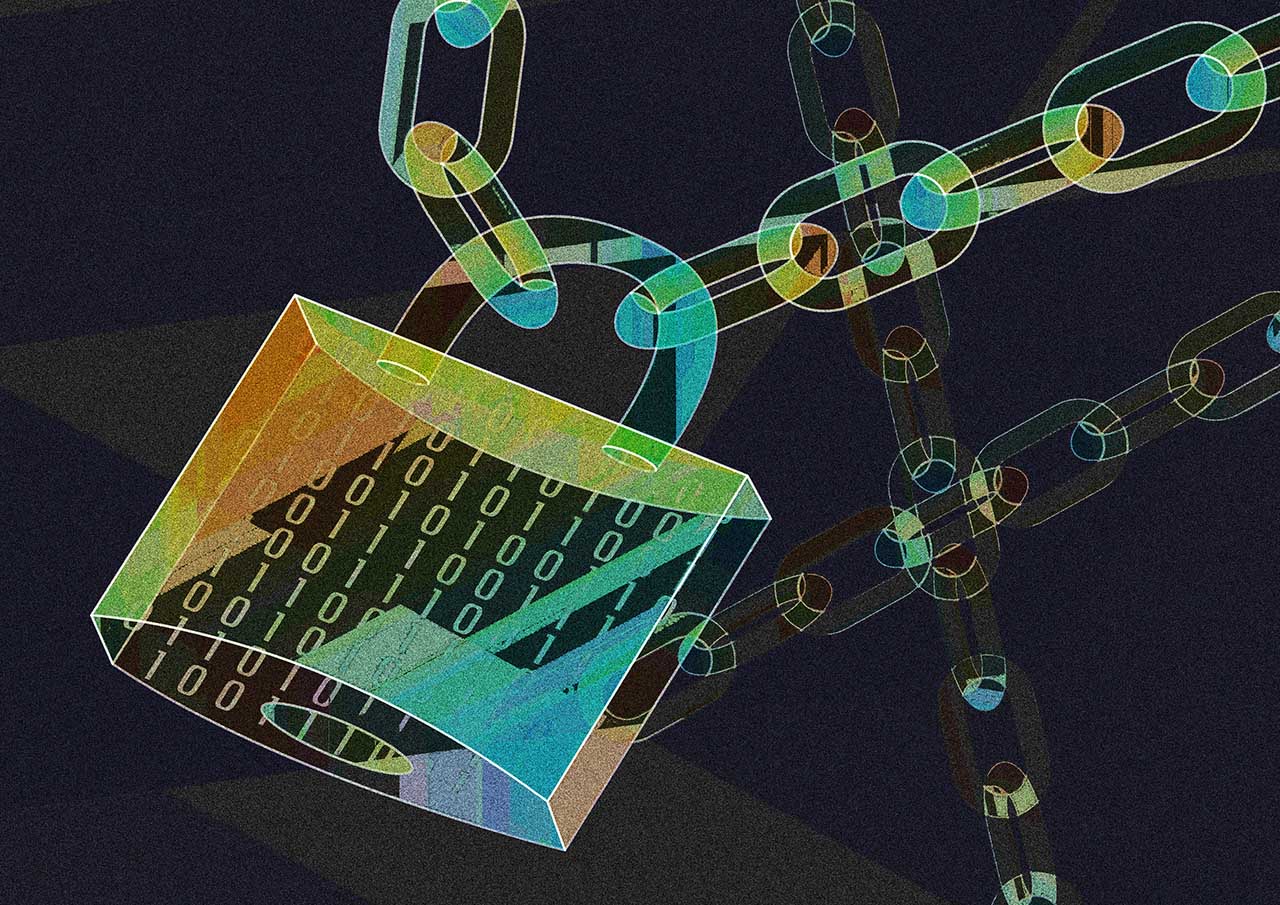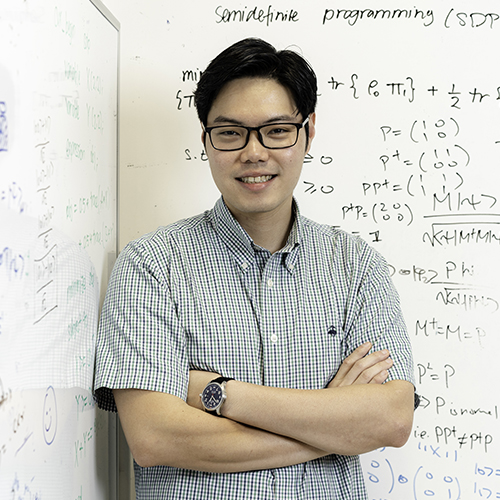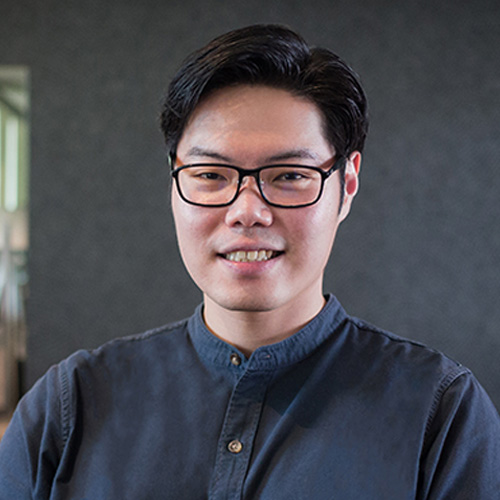Highlights
New collaboration with ST Engineering to develop quantum-resilient encryptors
 Quantum key distribution (QKD) provides security for digital data through the creation of private encryption keys. Image credit: Aki Honda / CQT, NUS
Quantum key distribution (QKD) provides security for digital data through the creation of private encryption keys. Image credit: Aki Honda / CQT, NUS
The Singapore-based company ST Engineering and the National University of Singapore announced on 29 May a collaboration to develop network encryption solutions that use quantum key distribution (QKD). ST Engineering has comprehensive industry experience in cybersecurity.
This new project, to be led on the NUS side by CQT Principal Investigator Charles Lim, will focus on an approach called “measurement-device-independent” QKD (MDI-QKD). The goal is to provide a scalable and cost-effective solution that can be deployed with minimal disruption to existing digital infrastructure, to benefit users from financial services institutions to government agencies and hospitals.
Network solutions
QKD creates private encryption keys via the transmission of a sequence of carefully prepared single-photon quantum signals. Data encrypted with the key is protected from hackers. The highly sensitive nature of quantum signals means that any attempts to intercept the key can be detected, allowing compromised keys to be discarded. This enhances the security of digital communication.
QKD solutions that are already commercially available are point-to-point systems – meaning they create keys between two parties that are directly connected. MDI-QKD has the potential to be implemented in networks for many users. It also avoids some concerns in the practical security of QKD implementations.
Charles, who is also an Assistant Professor in the NUS Department of Electrical and Computer Engineering, said, “As quantum computing becomes more prevalent worldwide, information security threats will also become more advanced. This collaboration which leverages MDI-QKD will lead to quantum-resilient encryptors that are not only secure against channel attacks but also against detection side-channel attacks.”
Innovation and enterprise
The partnership between ST Engineering and NUS is part of the Quantum Engineering Programme (QEP) announced in 2018 to help Singapore’s industries compete at the global forefront of innovation and enterprise, by tapping world-class expertise in the scientific research community.
Mr Goh Eng Choon, President of Cybersecurity Systems Group at ST Engineering, said, “The threat landscape is evolving very rapidly and we must be prepared for challenges to come in the post-quantum computing era. While QKD technology can be used to secure digital communications, it can also be used to mitigate future quantum computers being used to exploit and maliciously target weak links and disrupt the global encryption ecosystem. This research into quantum cryptography and the co-development of the industry’s first solution will allow us to explore the potential of this technology, further strengthen our arsenal of advanced cybersecurity solutions and gain a foothold in the QKD market.”
NUS is also working with leading nanoelectronics company imec co-develop new chip-based quantum crypto devices, which can be applied to the new MDI-QKD technology. These initiatives are among a suite of projects in quantum communication within CQT and at NUS.
QEP is funded by Singapore’s National Research Foundation (NRF). Mr George Loh, Director of NRF’s Services & Digital Economy, said, “As the use of digital technologies and services become increasingly mainstream, it is important that we find better ways to ensure our online engagement and digital privacy is more secure than ever. The objective of the National Quantum Engineering Programme, launched by NRF in late 2018, is to translate quantum research into tech-enabled capabilities that can benefit society and beyond. The research partnership between ST Engineering and NUS is testament to the success of deep-tech capability collaboration between academia and industry, which is based on strong foundational quantum science research at the Centre for Quantum Technologies in Singapore.”
This text is adapted from a joint press release by ST Engineering, NUS and NRF.
Learn more
Related Stories
 | National science award for CQT's Charles Lim October 18 2019 |
 | CQT welcomes three new Principal Investigators: Meet Charles Lim May 20 2020 |
CQT to collaborate with government agency IMDA June 11 2018 |






